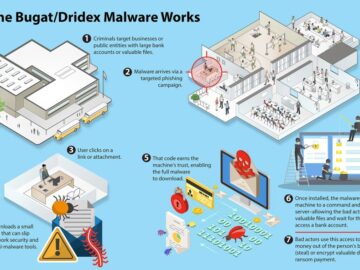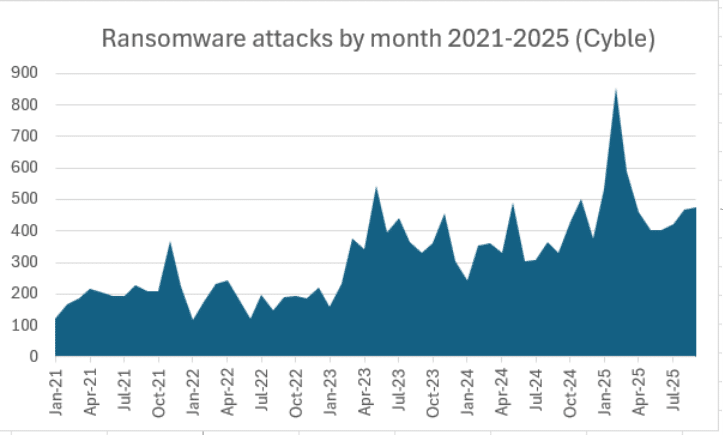Google hacks seem to be unlikely tools to make the life of a cybersecurity professional easier, right? Think again!
In today’s rapidly changing landscape of cybersecurity, it has become imperative for professionals to equip themselves with new tools and technologies. Staying ahead of the ever-evolving threats is the key, and protecting valuable digital assets is something that can’t be overlooked.
While it is widely acknowledged that specialized software and advanced training play significant roles in fortifying cybersecurity defenses, one resource that is often overlooked yet readily available is none other than the good old Google hacks.
Google, with its unparalleled search capabilities, has the potential to serve as an invaluable asset in discovering critical information and bolstering the pursuit of cybersecurity excellence.
In this comprehensive guide, we will reveal the top 10 Google hacks that every cybersecurity professional should know in 2023.
By leveraging these powerful Google search queries, professionals can gain the knowledge and skills to strengthen their cybersecurity prowess, ultimately ensuring online data protection.
Top 10 Google Hacks Cybersecurity Professionals Should Know

1. Mastery of “site:” operator
The “site” operator enables cybersecurity experts to delve deep into specific websites or domains. By combining this operator with relevant search phrases like “unlocking the secrets of Google hacks” or “mastering the art of ethical hacking,” professionals can refine their search outcomes exclusively within a designated domain.
For example, a search query such as “site:example.com cybersecurity” would yield information solely from the example.com domain relevant to cybersecurity.
2. The power of the “filetype:” operator
One can use the ” filetype: ” operator to find specific file types, such as PDFs filled with invaluable insights on cybersecurity best practices, one can use the “filetype:” operator.
By executing a search query like “filetype:pdf cybersecurity best practices,” Google’s vast digital repository is scoured to find exclusive PDF files relevant to cybersecurity best practices.
This invaluable technique enables experts to swiftly pinpoint resources and documents without going over multiple Google searches.
3. Finding related websites with the “related:” operator
The “related:” operator is another good Google hack used to discover websites akin to a specific online destination.
By leveraging this operator and entering “related:example.com” in the search field, Google reveals a treasure trove of websites that share similarities with example.com.
This quick Google hack serves as a gateway to expanding one’s knowledge horizons, introducing professionals to alternative perspectives, fresh resources, and diverse insights from a broader spectrum of sources.
4. Using specific phrases with exact match
To find precise information, enclose an exact phrase within quotation marks. By employing this strategy, such as searching for “cybersecurity tips,” the search engine will deliver results exclusively containing that specific phrase.
This method is advantageous when professionals seek targeted guidance, insightful articles, or focused resources tailored to their specific needs.
It allows them to cut through the noise and access the precise information they require, empowering them in their journey toward better searching powers.
5. Refining searches with the “-” operator to exclude terms
Cybersecurity professionals can use the e “-” operator to refine Google searches to exclude specific terms from their queries.
By adeptly utilizing this operator, such as in a search query like “cybersecurity tips -passwords,” password-related results will intentionally be omitted.
This technique serves as an effective means of narrowing down search queries and refining the focus of research.
It empowers professionals to eliminate irrelevant information, enabling them to concentrate on the most pertinent and valuable resources aligned with their specific needs and interests.
6. The ” ” wildcard operator for a wildcard search
Confronted with unfamiliar words or phrases in a search query, try this “” wildcard operator Google hack, a one-of-a-kind tool to navigate uncharted search queries on Google.
Using this Google hack, as demonstrated in a search query like “cybersecurity * best practices,” a plethora of results will emerge, incorporating different adjectives preceding the term “best practices.”
This adaptable Google hack enables professionals to explore diverse facets of cybersecurity, accommodating their quest for comprehensive knowledge and varied perspectives.
It empowers them to uncover various insights and approaches, enriching their understanding and expertise in the field.
7. Find historical information with the “..” Operator
To analyze historical data and identify trends, the “..” operator can be useful as it allows users to access information within specific numeric ranges.
By employing this Google hack, such as conducting a search query like “cybersecurity incidents 2015..2020,” an enormous amount of results will be retrieved, focusing solely on cybersecurity incidents that occurred between 2015 and 2020.
Being on of the popular Google hacks on this list, the “..” operator is a valuable resource for conducting in-depth historical analysis, enabling professionals to examine trends, patterns, and developments within the cybersecurity landscape over a defined period.
It equips them with critical insights to enhance their understanding of past incidents and inform future strategies and preventive measures.
8. Learning the “cache:” operator for cached pages
In situations where the original web page becomes inaccessible or undergoes alterations, cybersecurity professionals can use the “cache:” operator. This quick Google hack will help retrieve a cached version of the page by simply appending the URL.
This invaluable feature enables professionals to access and review valuable information that might have been removed or modified over time. By leveraging the cached version, they can track the past and uncover valuable insights, even when the original source is no longer available. This capability is instrumental in preserving and retrieving crucial data, empowering professionals in their cybersecurity endeavors.
9. Finding file types with the “intitle:” and “inurl:” operators
This technique is for advanced users who’ve already mastered the other techniques on this list. The “intitle:” and “inurl:” operators are used for searching specific file types — combined with the desired file extension.
By using these operators, such as executing a search query like “in title:index.of mp3,” a wealth of directories housing MP3 files is revealed. This technique empowers professionals in their targeted exploration of file formats directly relevant to cybersecurity investigations.
It allows them to navigate through the digital landscape with precision, uncovering valuable resources and potential evidence within the realm of cybersecurity and amplifying their capabilities in conducting comprehensive and effective investigations.
10. Responsible exploitation of Google Dorks
Cybersecurity professionals can also rely on Google Dorks, a unique way to access advanced search queries for reconnaissance and vulnerability assessment.
With strategic deployment, these queries unveil targeted information and vulnerabilities, providing valuable insights crucial for fortifying digital systems.
However, it is essential to exercise responsible usage of Google Dorks, ensuring proper authorization and adherence to legal and ethical guidelines.
By utilizing Google Dorks responsibly, professionals can maximize their effectiveness while minimizing the risk of encountering potential legal or ethical ramifications.
A cautious and ethical approach ensures the integrity of cybersecurity practices and upholds the principles of lawful and responsible information exploration.
Google hacks for cybersecurity pros: Conditions apply
To sum up, with its robust search capabilities and hidden features, Google offers an array of tools that can elevate the skills and expertise of cybersecurity professionals.
By mastering site-specific searches, file-type searches, and various operators like “related:” and “cache:,” professionals can unlock information which is usually hidden to average internet user.
These techniques optimize search efficiency and knowledge acquisition while maintaining ethical standards in the field of cybersecurity.
However, it is crucial to remember that the ethical and responsible use of these techniques is paramount in cybersecurity.
With these Google hacks, cybersecurity professionals can strengthen their abilities and maintain an advantage in the ongoing battle against digital threats.




